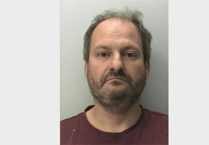Dartington Trust was “close to a cliff edge” last year and only months away from being unable to pay staff, interim CEO Robert Fedder has said.
Mr Fedder undertook an extensive review of Dartington Trust’s entire operations when he took over the role in July.
In an exclusive interview with this paper, he said almost every venture at the charity was making a loss, adding that he and his team spent the last few months “rescuing the place”.
The comments come in the wake of a string of highly publicised incidents at the charity.
In September, courses at Schumacher College were abruptly postponed after the majority of students had reportedly paid their tuition fees.
The courses quickly resumed, but there was further bad news in October, when the future of the international summer school and festival was thrown into doubt after artistic director Sara Mohr-Pietsch and her team decided to quit.
Just over a month later, more than 100 protesters descended on the Dartington estate, demanding greater transparency from bosses while complaining about a host of issues, including the introduction of flexible working or zero-hour contracts.
Mr Fedder said: “When I was appointed I knew we were very close to a cliff edge. I’m not talking about years – I’m talking about a few short number of months. There wasn’t much time to really change things and reduce the significant outflows of cash.
“In some of those cases, the more volume (there was), the more loss it would make - that became very apparent.”
According to the findings of the review, almost every arts event was losing money. Dartington’s retail centre and hospitality outlets were also incurring large losses, while revenue from the rental side of the charity was not enough to cover the cost base. Some tenants “had not ever paid rent”, he revealed.
He stressed that Dartington’s “rich asset base” could be sustainable economically, but that this was not enough to prevent its collapse.
“You can’t carry on losing money in lots of different areas without having your immediate cash reserves running out,” said Mr Fedder, who would not say how much money the Trust was losing.
To recover costs, the charity needed to operate as a commercial business and generate “a moderate surplus”.
Although the charity’s finances have been stabilised, getting Dartington fully back on track will take three years, he said.
“We want to break even in this financial year and need to start re-investing,” he stressed.
He conceded that selling assets was an unpopular measure, citing how Dartington’s footprint had shrunk from 5,000 acres to just over 1,000.
“People don’t like us selling assets; people do not like property development on green field, and I get why they do not understand that. I wouldn’t like it. But that will be an inevitable consequence of not operating on a commercial basis,” he warned.
(Dartington's communications office later clarified this statement, saying: "We have no intention to sell any more land for development. We expect any further sales to involve parties who want to improve or preserve the land".)
Regarding staff, he said because of the “peaks and troughs in demand”, flexible working needed to be introduced, adding that workers were now experiencing “very high stability”.
He however criticised those who used the term ‘zero hours’, accusing them of using a pejorative term.
“It was a deliberate mischaracterisation. It’s making the assumption that there would be no hours,” he said.
New direction
Mr Fedder wants to attract more visitors by also focusing on Dartington’s cinema and outdoor shows that will not only host classical music concerts, but jazz, pop and rock, and even comedy.
But he also stressed that certain college courses, such as regenerative agriculture, would remain at the forefront of future plans.
“There’s real opportunity for the asset value to be built partly around the reputation Schumacher has,” he said, adding that the key was to develop courses that people would find compelling and “want to spend money on”.
Signs of Dartington’s new direction emerged last week, with the announcement that the summer school and festival will go ahead in August as originally planned, under the guise of a new format and name – ChoralFest.
The event will also herald the introduction of Dartington Trust’s new creative director, accomplished baritone Mark Stone (see separate story).
However, a rival event being held at the same month in Norfolk under the Dartington banner is further evidence of last year’s turmoil.
Stephen Benzikie, Dartington’s chief marketing officer, said: “They decided to leave...and they have found a venue to put on a similar event to the one they used to run here.”
He said the event was not linked to Dartington as organisers had been unable during earlier negotiations to guarantee that it would run at a profit.



